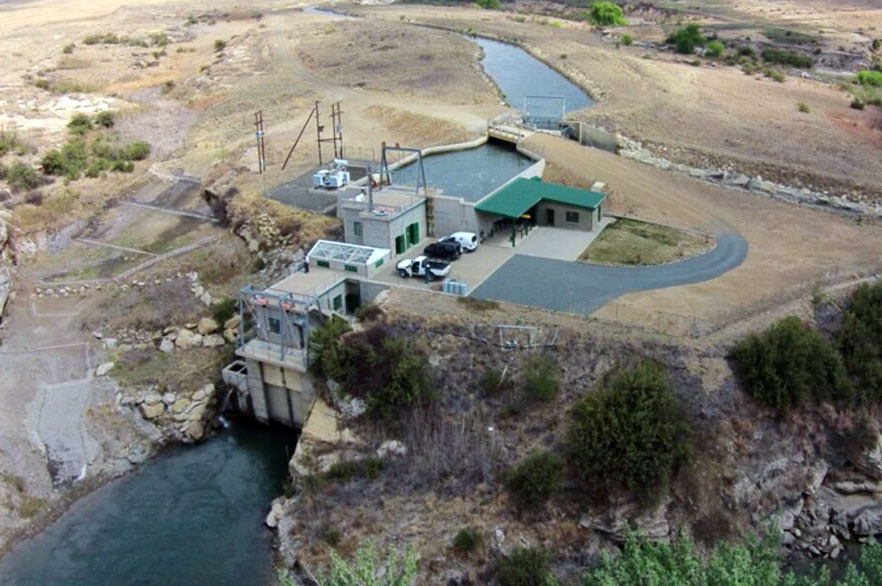Construction at Serengeti Energy‘s Boston Hydro project is progressing as planned, with attention shifting to preparations for the scheduled water outage of the Lesotho Highland Water Project from October 1 to March 31, 2025.
This period will facilitate crucial in-river construction, including the building of a diversion weir, featuring a mass concrete spillway and earth embankment. To expedite the process and ensure safety, the construction team is using precast elements for this phase of the project.
Serengeti’s Boston Hydro, the 5MW run-off-river power plant is located on the Ash River within the Lesotho Highlands Water Scheme (LHWS). The project started with construction in late October 2023 and is scheduled to start its commercial operations in July 2025. The 30GWh per annum of electricity that will be generated by the plant will be wheeled via the Eskom grid and traded by Etana Energy to various Growthpoint Properties commercial buildings across South Africa.
It will be the largest of six hydropower plants in the region. It is part of a broader water transfer scheme between Lesotho and Gauteng and marks Serengeti Energy’s fourth hydropower facility in the country. Boston hydro is Serengeti Energy’s fourth hydroelectric plant on the Ash River water transfer scheme; 3 MW Sol Plaatje was commissioned in 2009, 4MW Merino in 2010 and 4MW Stortemelk was the third, commissioned in 2016. All four of these hydroelectric power plants generate baseload, i.e., non-intermittent power that is injected into the national grid. Boston Hydro’s strategic location will enable Serengeti Energy to capitalize on the LHWS Phase 2 expansion, which increases the plant’s contribution to base load generation into the national grid.
This private sector PPA establishes a new model for the development of power projects in South Africa and for consumers to ensure their access to reliable, sustainable and affordable clean energy. Private PPAs are emerging as a viable route for achieving energy security, diversifying energy sources, and driving economic development in South Africa and beyond.
The Boston Hydro project is currently about 50% complete. The powerhouse, requiring extensive excavation work and the installation of more than 150 tons of hydroelectric equipment, remains a key priority. The process to install the double-regulated Kaplan turbine is scheduled to begin in early 2025, followed by the synchronous generator and dry-type transformer. Preparations for the hydro-mechanical gates are in progress, with installation expected to start in October 2024.
The plant is expected to contribute significantly to South Africa’s renewable energy goals.

